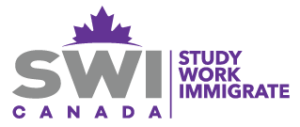As foreign national interested in working in Canada you must first find out if you are eligible for a Work Permit. You normally have to apply for a work permit from outside Canada. Sometimes, you can apply as you enter Canada or from inside Canada, depending on the type of permit you are applying for, How you apply and how long it will take to process your application also depend on the kind of work you will do when you come to Canada.
A Canada Border Services Agency (CBSA) officer will issue the Canada Temporary Work Permit at the point of entry when the foreign worker arrives in Canada.

If applicable, a Labour Market Impact Assessment (LMIA) should be obtained in advance of applying. However, in some cases a case may be exempt from this requirement. In other cases, the work in Canada could be subject to an exemption from a work permit under business visitor or other provisions.
The Work Permit application must be submitted to the appropriate venue for processing. This may include a visa office abroad, a port of entry depending on nationality and the nature of the case, or centralized processing offices responsible for pre-screening of port of entry applications depending on nationality and the nature of the case.
Some applicants for a Canadian work permit will be required to undergo medical examinations prior to issuance of a Canadian visa, which can also effect the duration of the application process. Situations in which this is necessary depend on the duration of the work permit being required, the residence of the applicant in the 12 months prior to the submission of a case, and the nature of the occupation (e.g., some occupations involving direct contact with the public for greater than three hours per day may always require medical examinations).

